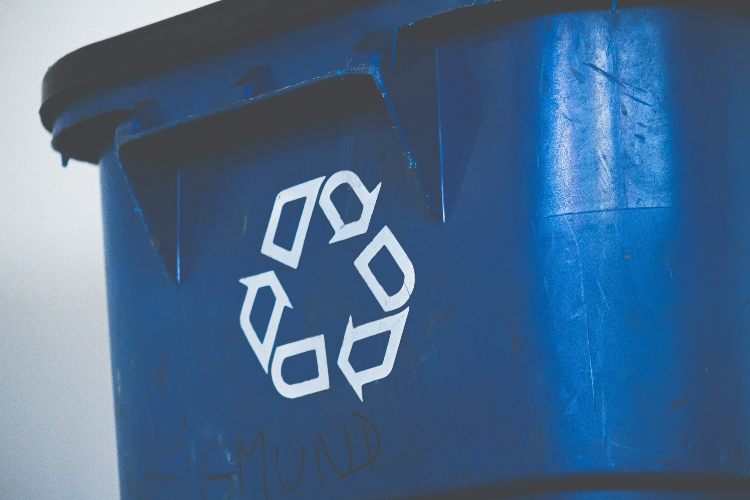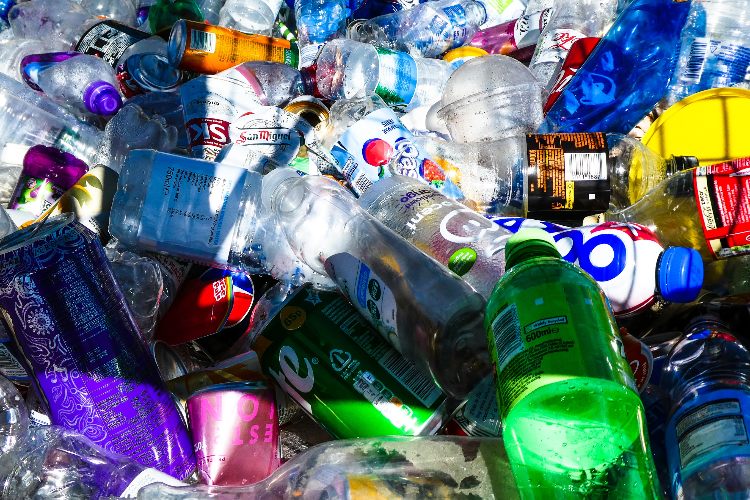
Do you throw out a ton of stuff and want to start recycling? Recycling conserves natural resources but also reduces pollution and energy consumption. While recycling as much as possible is essential, some materials significantly impact the environment when recycled. Understanding crucial items to recycle can increase the chances of successful recycling. Here are the top 5 most important things to recycle for a sustainable future.
1. Plastic Bottles and Containers
Plastic pollution has become a pressing issue for our planet. Plastic bottles and containers are among the most common single-use plastics in landfills and oceans.
Data shows we use over 40 million tons of single-use plastics nationwide. 80% of that will likely end up in landfills. Recycling plastic helps conserve the energy and resources required to produce new plastic products.
Additionally, it reduces the harmful emissions released during the production process. When we recycle plastic bottles, they can transform into new products. These can include:

- New Bottles
- Clothing
- Furniture
Giving them a new lease on life prevents them from ending up in our water and harming marine life.
Not all plastics are recyclable. Check the labeling number on the item before putting it in the recycling bin. Ideally, PET plastics (polyethylene terephthalate) are the most recyclable due to their compounds. Plastics numbered 1, 2, or 3 are recyclable.
2. Paper and Cardboard
Paper and cardboard products constitute a significant portion of household waste. Recycling paper and cardboard saves trees and reduces the energy and water usage required for paper-making. Recycling paper products into new paper items minimizes the demand for virgin pulp, thus preserving our forests.
Additionally, recycling paper and cardboard prevents them from clogging up landfills, where they contribute to harmful methane gas emissions. Recycling paper and cardboard can significantly decrease our ecological footprint and promote a more sustainable future.
3. Aluminum Cans
Aluminum cans are one of the most valuable items to recycle. Aluminum recycling saves up to 95% when processing raw materials into aluminum.
This energy conservation translates to reduced greenhouse gas emissions and a smaller carbon footprint. Aluminum cans are infinitely recyclable, meaning they can recycled repeatedly without losing quality.
Recycling aluminum also reduces the pressure on natural resources, like bauxite, that produce aluminum. By recycling aluminum cans, we contribute to conserving energy, reducing emissions, and preserving the Earth’s natural resources.
4. Electronic Waste (E-waste)
Electronic devices have become part and parcel of our lives as technology advances. However, these devices often contain hazardous materials like lead, mercury, and cadmium. These can contaminate soil and water if disposed of improperly.
Recycling e-waste prevents environmental pollution and conserves valuable metals and minerals.
Electronics recycling involves recovering and reusing components from old devices, reducing the need for raw materials and energy-intensive manufacturing processes. By recycling e-waste, we can minimize the environmental impact of discarded electronics and promote the responsible disposal of electronic devices.
5. Glass Containers
Glass is a highly recyclable material. You can recycle glass many times without losing its quality or purity. Recycling glass conserves energy as it requires lower temperatures to melt recycled glass than raw materials.
Additionally, recycling glass reduces the demand for raw materials like sand, soda ash, and limestone, preserving natural resources. It helps reduce the amount of waste in landfills, where glass does not disintegrate and can take thousands of years to decompose. Recycling glass containers can promote a circular economy, minimize environmental impact, and contribute to a cleaner, greener planet.
How to Prepare Items for Recycling
Now that you know the five most important things to recycle, let’s tackle how to pack them. Taking the essential items to prepare items before tossing them in the recycling bin improves the recycling rate.
First, rinse and dry food containers and jars, ensuring no food and liquid residue. Check with your recycling center if you should leave the lids on. Often, you should remove lids that are smaller than 10cm.
Another thing, leave your recyclables loose. Plastic bags clog the sorting equipment and need help to separate stacked materials. Flatten boxes and cardboard to create more space and ensure papers are dry.
Premier Recycling Facility in Los Angeles
American Reclamation runs a fully-fledged recycling facility for everyday recyclable material. Our ultra-modern facility accommodates scrap metal, construction and demolition material, green waste, carpet, tire, and e-waste material.
Recycle Better for A Sustainable Future
Recycling plays a crucial role in conserving natural resources, reducing pollution, and mitigating the effects of climate change. While recycling is essential as much as possible, focusing on these top 5 most important things to recycle
